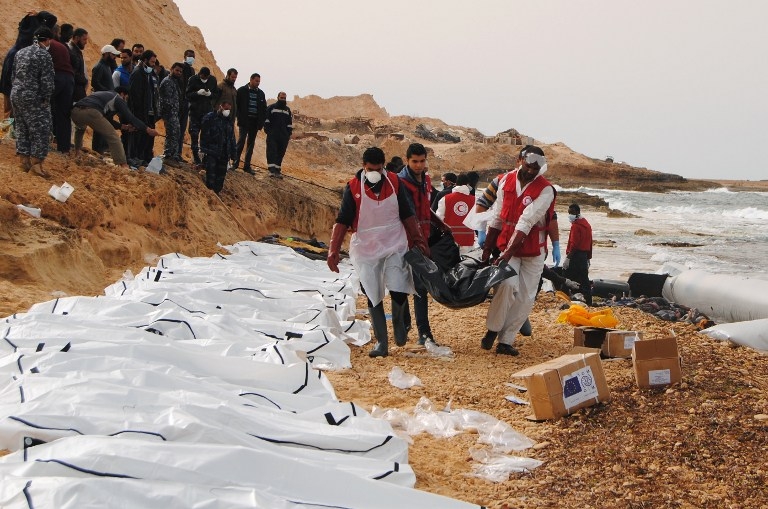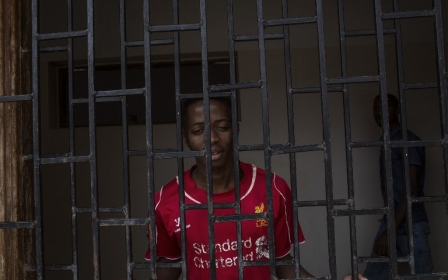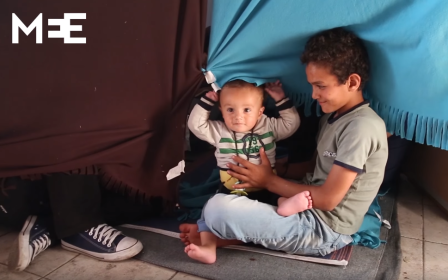EU migration policy: Has Europe lost its way?

This week, a landmark statement by more than 170 NGOs urged the European Union to “lead by values, not fear,” both through its migration policy and responses to the needs of refugees, asylum seekers and migrants trying to reach Europe.
“We hear you repeating your commitment to European values — respect for human dignity, liberty, democracy, equality, the rule of law and human rights. But we expect to see them in your actions, too,” said the letter addressed to EU leaders, signed by several leading NGOs and aid organisations including Amnesty International, Oxfam and Save the Children.
“Too many leaders have been preoccupied with stopping people from reaching Europe, at the risk of reducing access to protection for those who need it most.”
“Instead of countering the rise of xenophobic populists, Europe’s response has too often been to copy their recipes. But an approach based on deterrence and border closures cannot override an effective long-term policy,” it added, calling for “statesmanship that stands up for humanity and dignity and that addresses people’s fears, instead of fuelling them."
With far-right movements on the ascendancy on the ground and in the polls, EU leaders are rattled; more and more, that is impacting migration policy in the Mediterranean and beyond. There is now growing disquiet within policy and human rights circles about just how willing EU policymakers appear to pursue quick-fix solutions that trade in the rights of refugees and asylum seekers and polarise public opinion within Europe at the same time.
Development for deportation?
Last week, Angela Merkel toured North Africa to drum up support for those policies, effectively using socio-economic development incentives to push the EU’s migration agenda. Merkel offered Egypt some $250mn in socio-economic support, and Tunisia $265 million in development aid in return for smoothened EU-Tunisia deportations. Merkel, in particular, has spoken in favour of establishing “reception” camps in North Africa to absorb deportees from Europe.
These follow framework plans to negotiate ad hoc migration deals aimed at allowing Europe to ease deportations of unwanted African migrants back across the Mediterranean, according to two senior officials in Brussels speaking to Reuters last month.
Brussels is preparing to soon celebrate the 60th anniversary of the Rome Treaty, which established key components of the EU in 1957. Recently, each and every supposedly positive step is presented as a reflection of the founding ideals of the European project — or the “European way”.
Despite the very obvious rights implications for refugees and asylum seekers in a country that a major UN rights report recently described as facing a “human rights crisis”, that was the wording used EU foreign policy chief Federica Mogherini used after a 3 February migration summit in Malta that endorsed a new agreement to send back boats to Libya and detain migrants there.
The Malta deal, Mogherini said, was reflective of “the European way,” typified by “cooperation with countries of origin and transit, the respect of human rights, the support to the [UNHCR] and the International Organisation for Migration, [and] the fight against criminal organisations trading on the lives of these new slaves".
Contravening international law?
But there are words, and then there are actions.
UNHCR and UN human rights experts have all already warned that the Libya deal may actually contravene international law.
On Friday, a report by the UK’s Independent Commission for Aid Impact expressed concerns that UK aid to Libya is “contributing to a system that prevents refugees from reaching a place of safe asylum”. UK-funded camps are said to lead to “indiscriminate and indefinite detention".
On Tuesday, the European Court of Justice (ECJ) ruled that member states will not be obliged to provide humanitarian visas to asylum seekers at risk of torture or degrading treatment outside the EU. In other words, according to the Migration Policy Group’s Thomas Huddleston, European states have “full discretion to refuse humanitarian visas".
The ECJ ruling followed a court battle between the Belgian government and a Syrian family from Aleppo who applied for a visa to live with acquaintances in Belgium late last year. After applying for the visa at the Belgian embassy in Lebanon last October, the Belgian government rejected their application.
Humanitarian visas have long been an important way for refugees and asylum seekers to obtain international protection in Europe, and the kind of humanitarian, legal migration route that European politicians often say they’re in favour of. It’s a reminder of another failure of responsibility within the EU itself: less than 10 percent of promised refugee relocations from camps in Italy and Greece have taken place so far, or just 13,546 of the promised 160,000.
Over the past two to three years, I’ve encountered dozens of Syrians and particularly Palestinian-Syrians who were rescued from prisons and airport detention rooms, while at risk of imminent deportation, through EU states intervening with humanitarian visas. They are particularly important for stateless families stuck in legal limbo: Palestinian-Syrian families who’d fled war in Syria and then another in Gaza in 2014, young men fearing return to Syria and the military draft, children eating prison food for months on end while not yet old enough to understand the cruelties of international law.
Viewed either at the national (member state) or supranational (EU) level, European migration policy is not living up to these values — and the precedent of the Libya deal suggests things may be about to get worse.
'European values'
The same day as the ECJ ruling, EU member Hungary adopted a law which will allow its government to detain all asylum seekers present on Hungarian soil in containment camps.
The law was quickly criticised by UNHCR, which argued it violated “Hungary's obligations under international and EU laws, and will have a terrible physical and psychological impact on women, children and men who have already greatly suffered".
Besuited European Union policymakers will likely make much of Hungary’s law: it doesn’t reflect European values and it doesn’t reflect “us”.
According to the self-serving racism directed at Eastern European countries during the gradual closure of the Balkan Route between 2015-2016, countries like Hungary exhibit a thuggishness that has no place in the corridors of Brussels.
But to make that leap, you have to forget the EU-backed detention camps on the Greek islands, the EU-Turkey deal, or the latest Malta summit. The difference is that a lot of these initiatives aim to make refugees and asylum seekers less visible, outside the borders of EU. Hungary just had the bad taste to do it on European territory.
- Tom Rollins is a Cairo-based freelance journalist. Published by The Independent, New Statesman, Vice, Mada Masr, Dazed & Confused, Egypt Independent and others.
The views expressed in this article belong to the author and do not necessarily reflect the editorial policy of Middle East Eye.
Image: Libyan Red Crescent volunteers recovering the bodies of 74 migrants that washed ashore on 20 February near Zawiyah on Libya’s northern coast. The International Organization for Migration (IOM) said the boat was reported to have foundered leaving as many as 100 people dead (AFP/Libyan Red Crescent)
New MEE newsletter: Jerusalem Dispatch
Sign up to get the latest insights and analysis on Israel-Palestine, alongside Turkey Unpacked and other MEE newsletters
Middle East Eye delivers independent and unrivalled coverage and analysis of the Middle East, North Africa and beyond. To learn more about republishing this content and the associated fees, please fill out this form. More about MEE can be found here.





